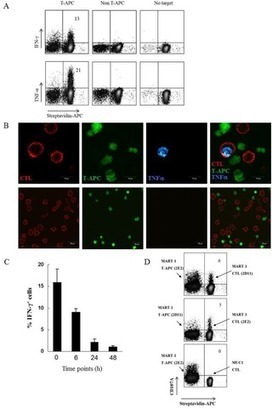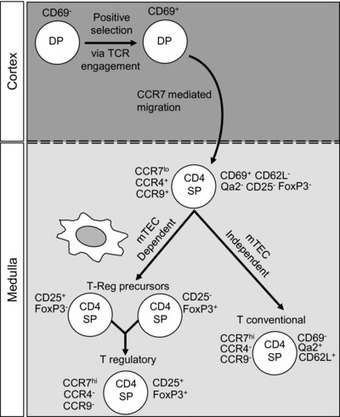Highlights•T effector cell differentiation depends on de novo fatty acid (FA) synthesis.•CD8+ T memory cell development and function depend on both FA synthesis and oxidation.•FA synthesis and oxidation are determinants for CD4+ T effector versus Treg cell development.•These pathways may present therapeutic targets for modulating T cell responses in vivo.
The specific regulation of cellular metabolic processes is of major importance for directing immune cell differentiation and function. We review recent evidence indicating that changes in basic cellular lipid metabolism have critical effects on T cell proliferation and cell fate decisions. While induction of de novo fatty acid (FA) synthesis is essential for activation-induced proliferation and differentiation of effector T cells, FA catabolism via β-oxidation is important for the development of CD8+ T cell memory as well as for the differentiation of CD4+ regulatory T cells. We consider the influence of lipid metabolism and metabolic intermediates on the regulation of signaling and transcriptional pathways via post-translational modifications, and discuss how an improved understanding of FA metabolism may reveal strategies for manipulating immune responses towards therapeutic outcomes.
Via Krishan Maggon



 Your new post is loading...
Your new post is loading...










Trends in Immunology Volume 36, Issue 2, p81–91, February 2015
Fatty acid metabolism in the regulation of T cell functionMatthias Lochner*, Luciana Berod*, Tim SparwasserInstitute of Infection Immunology, TWINCORE, Centre for Experimental and Clinical Infection Research, a Joint Venture between the Medical School Hannover (MHH) and the Helmholtz Centre for Infection Research (HZI), Hannover, Germany*These authors contributed equally to this work. DOI: http://dx.doi.org/10.1016/j.it.2014.12.005